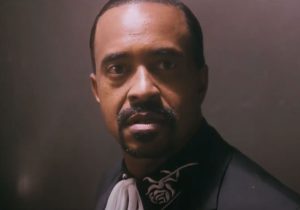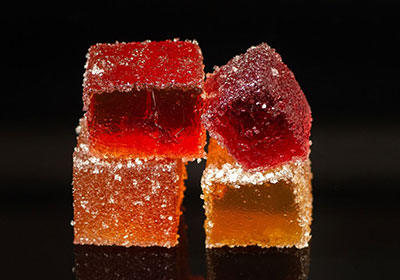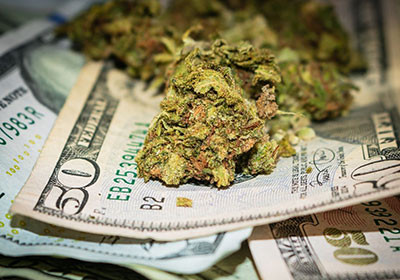A hilarious scene in “Walk Hard: The Dewey Cox Story” features a musician’s first experience with cannabis.
It shows an exchange between the title character, played by John C. Reilly, and his drummer, Sam, played by Tim Meadows. Dewey bursts into a room backstage, where Sam and a few other people had gathered to use cannabis.
“We’re smoking reefer, and you don’t want no part of this s—,” Sam tells Dewey.
Dewey, although curious about cannabis, actually tries to assist Sam in his effort to discourage Dewey’s curiosity.
“You know what, I don’t want no hangover,” Dewey says.
“It doesn’t give you a hangover!” Sam replies.
Dewey raises four other concerns about cannabis, and Sam shoots them all down. But was Sam right? Let’s take a look.

Next-day side effects of cannabis use can include “brain fog,” feeling tired, and feeling less alert than usual. Some cannabis users report zero hangover-like effects the morning after using cannabis.
There has been limited research about cannabis’ lingering effects on users the following morning. But there is a mountain of anecdotal evidence. Some cannabis users say the drug gives them no hangover, but others have noted some adverse effects.
In a 2017 study, some patients reported a “brain fog” or a “non-alert feeling” the morning after using cannabis.
A 2019 study found “daytime fatigue” is a potential short-term outcome of using cannabis to improve sleep.
Let’s pause a moment to compare these symptoms to those of an alcohol-induced hangover. A night of drinking can leave one feeling not just fatigued but downright miserable. Alcohol hangovers typically cause nausea, muscle aches, stomach pain, irritability, and other unpleasant effects.
Maybe Sam had an alcohol hangover in mind when he told Dewey that cannabis doesn’t give you a hangover.
In a 1990 study, researchers performed tests on 12 regular cannabis users over two weekends.
“In short, marijuana smoking was not associated with a ‘hangover’ syndrome similar to those reported after use of alcohol or long-acting sedative-hypnotics,” the study authors wrote.
That study had a few limitations. There were only 12 participants, and none of them were female. Another issue was the cannabis used in the study contained about 2% THC – relatively low by today’s standards.
One way to minimize the potential next-day effects of cannabis consumption is to learn your “just right dose.” By using the minimum amount of THC needed to treat your condition, you can minimize any lingering effects too. Use our handy “Find Your Just Right Dose” guide for a step-by-step tutorial.
Verdict: Mixed. Cannabis may or may not have noticeable lingering effects on the user the day after consumption. If you’re new to cannabis, consider that you may feel less alert than usual in the morning after using THC.

Tim Meadows plays “Sam,” who makes a number of dubious statements about cannabis in “Walk Hard: The Dewey Cox Story.” Image courtesy: Columbia Pictures
Cannabis may not have the powerful addictive qualities of nicotine, cocaine, or opiates, but it can still become a habit. In fact, this habit has a name: cannabis use disorder (CUD).
People with CUD often have a high tolerance for cannabis and may feel withdrawal symptoms after ceasing cannabis use. Cannabis withdrawal symptoms can include anxiety, irritability, and difficulty sleeping.
Other signs of CUD include cannabis-related interpersonal problems, neglecting significant responsibilities, and disinterest in activities one used to enjoy.
“There is clinical and epidemiological evidence that some heavy cannabis users experience problems controlling their cannabis use, and continue to use despite adverse personal consequences of use,” the authors of a 2001 study wrote. “Surveys in the USA and Australia show that cannabis dependence is the most common form of drug dependence after alcohol and tobacco.”
The good news is that most cannabis users do not develop cannabis use disorder. One commonly-cited study shows about 9% of cannabis users will become dependent on the drug. According to a 2020 survey, 5.1% of Americans age 12 or older had a cannabis use disorder in the last year.
Verdict: Mixed. If Sam had qualified his statement by saying, “It’s not usually habit-forming,” we’d say that’s true. But the reality is millions of Americans have cannabis use disorder.

Edible cannabis products, like the gelatinous cubes sold in Utah, are the most common source of cannabis overdoses. Fortunately, the unpleasant effects of cannabis overdoses are temporary and non-lethal.
Sam probably meant you couldn’t fatally overdose on cannabis, which is true. There is no recorded evidence of deaths directly attributable to cannabis alone.
But using too much THC can cause uncomfortable side effects like anxiety, paranoia, and an elevated heart rate. We think of a “cannabis overdose” as any use resulting in uncomfortable or unpleasant reactions.
Fortunately, these unpleasant effects are temporary and non-lethal.
Most THC overdoses occur with edible forms of cannabis. Some people call this type of overdose a “cookie casualty.” A typical cookie casualty happens when the user ingests a cannabis edible and grows impatient with the onset time. Rather than waiting for the initial dose to take effect, the user decides to take another one.
Resting in a tranquil setting and drinking plenty of water can help with a THC overdose. Using CBD may also reduce any unpleasant effects.
Verdict: Mixed. Cannabis overdoses are not only possible but pretty common, especially with inexperienced users. In this sense, Sam’s statement is false. However, this character may well have been thinking of a fatal overdose, which doesn’t happen with cannabis.

Cannabis indeed makes sex better for many people. But using too much THC could kill the mood.
If you skipped straight to this section, we won’t hold it against you. Fortunately, there’s some great news here for sexually-active cannabis users!
A 2017 study found a positive association between cannabis use and sexual frequency among men and women of all demographics.
“Marijuana use is independently associated with increased sexual frequency and does not appear to impair sexual function,” the study says.
In other words, cannabis users tend to be more sexually active than non-users.
In 2003, researchers reviewed dozens of other studies to gain insight into the self-reported effects of cannabis. They found cannabis users frequently endorsed the drug because it increases sexual pleasure or sexual arousal. But a small percentage of users reported cannabis makes them less sexually aroused or causes difficulty in reaching orgasm.
THC is “biphasic,” meaning a small dose has one effect, and a larger dose has the opposite effect. Research has shown low amounts of THC can increase sexual desire and enjoyment. But larger quantities can cause sexual problems like anxiety, inhibited orgasm, and lack of interest. The “start low and go slow” approach to using Medical Cannabis seems relevant in this case too.
Verdict: Likely true for most sexually-active cannabis users, based on limited anecdotal evidence.

An eighth of an ounce of Medical Cannabis flower typically costs about $60 in Utah. Patients often complain about the steep cost of cannabis.
Cheaper than a dollar-store bottle of aspirin? Hardly. Maybe Sam meant cannabis is the cheapest street drug. At the time, for this particular mid-20th century character, cannabis may well have been the most inexpensive (street) drug available.
Regardless, the cost of street drugs can vary widely due to several factors. These include drug quality/potency, supply vs. demand, and the general availability of illicit drugs in a particular region.
Today, the high cost of cannabis is one of the top complaints among Utah’s Medical Cannabis patients. An eighth of an ounce of cannabis flower typically costs about $60 at Utah’s cannabis pharmacies.
Verdict: Mixed. This statement may be true for people in some cases. But it’s certainly not true when considering the cost of Medical Cannabis versus the expense of other medicines in Utah.
The “Walk Hard” scene appeals to many cannabis users by reinforcing some commonly-held but dubious beliefs about cannabis. In reality, there are serious risks and complications that can arise from cannabis use. Utah Therapeutic Health Center advocates for the responsible and safe use of all Medical Cannabis products.
If you’d like more information on Medical Cannabis, reserve an appointment with one of our Qualified Medical Providers.